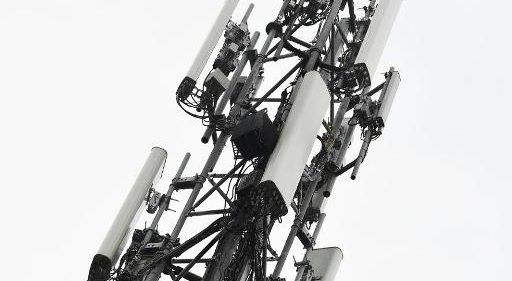The main legislative work has been done to ensure antennas will finally be able to distribute 5G throughout the Brussels region from September.
Excluding the municipality of Jette, which could be serviced by antennas in Flanders, the Belgian capital has long been an isolated island in Belgium where the fastest 5G network connections were not accessible to smartphone users. But the end of the problems is in sight, De Tijd reported on Saturday. From September, antennas will be able to distribute 5G throughout the Brussels region.
"Long overdue, the capital has finally put in place the final regulatory framework to activate 5G antennas. The executive decrees enabling the effective deployment of 5G were finally published in the Moniteur Belge at the end of June," Aurélie Czekalski, a French-speaking Brussels MP, wrote on Twitter.
Next steps
Network operators such as Telenet-Base, Orange and Proximus can now apply to the Brussels environment administration for a licence to operate 5G antennas.
The applications from the network operators are reportedly ready to be sent, while the response time is expected to be around eight weeks.
Once everything is approved, all that remains is to technically upgrade the existing antennas from 4G to 5G, which is reportedly a simple operation that will only take a few days, meaning the first 5G antennas in Brussels could be switched on during September.
However, the most populated areas will be given priority, and it could take another year before the entire capital is served. Meanwhile, the Brussels region has particularly strict radiation standards for telecom applications, stipulating that antennas can only transmit 14.5 volts per metre. As a result, more antennas have to be placed on existing sites to meet demand.
Health concerns
Connections via 5G are projected to be 100 times faster than 4G, but will also ease the strain on the existing 4G network, which now sometimes crashes, especially at peak hours. However, the rollout of these next-generation networks has also spurred concerns about the potential health effects.
The radiation emitted by 5G will largely be the same as previous networks, except that it will be exposing us to something called millimetre waves for the first time, meaning there is little scientific evidence of the effects it will have on people, while it is difficult to estimate the radiation from the antennas required for the service.
Related News
- Telecommunication Minister releases €11 million for improving Internet on trains
- Augmented Reality and 5G: Brussels hospital introduces new ambulances
In March 2019, former Brussels Minister of Environment Céline Fremault blocked plans for a pilot project to provide high-speed 5G wireless internet in Brussels due to fears for the health of citizens.
"The people of Brussels are not guinea pigs whose health I can sell at a profit. We cannot leave anything to doubt," she said at the time.

